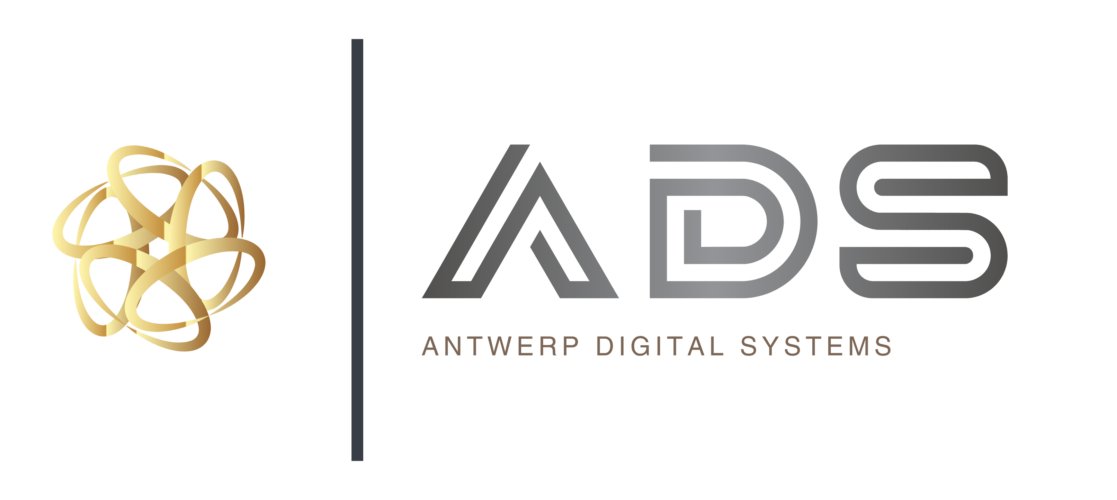The Importance of Business Security Camera Installation for Protecting Your Company
In today’s dynamic and highly competitive business landscape, the safety and security of your property, employees, and assets are paramount. Whether you’re a small business owner or managing a large corporate facility, implementing a business security camera installation is a crucial investment that offers peace of mind and protection. Security cameras serve as both a deterrent to potential criminal activity and a valuable tool for monitoring operations, reducing liabilities, and maintaining employee safety. This article will dive into why business security camera installations are essential, the different types of systems available, and how to choose the right system for your specific needs.
Why Businesses Need Security Cameras
Security cameras are not just a luxury; they have become a vital aspect of comprehensive business security strategies. Here are a few critical reasons why installing security cameras is essential for businesses:
Crime Deterrence
Visible security cameras significantly reduce the likelihood of crimes such as theft, vandalism, and trespassing. Criminals are much less likely to target a business with visible surveillance equipment, knowing their actions are being monitored and recorded. By installing cameras in high-traffic areas and entry points, businesses can deter potential intruders and criminals from even attempting illegal activities.
Loss Prevention and Asset Protection
Businesses dealing with high-value products or assets—whether in retail, manufacturing, or warehouses—are often targets for theft. Security cameras help monitor stockrooms, cash registers, and other critical areas where assets are stored, preventing both internal and external theft. When incidents occur, camera footage provides valuable evidence for investigations and can help recover stolen goods.
Employee Safety and Monitoring
Employee safety is a top priority in any workplace. Security cameras monitor workspaces for compliance with safety regulations, ensure that proper procedures are followed, and can quickly identify hazards that need to be addressed. Cameras also protect employees from harassment and violence, providing proof in the event of workplace disputes or incidents.
Operational Efficiency
Security cameras are not just about preventing crime. They can also play a key role in improving operational efficiency. Business owners and managers can use CCTV footage to identify bottlenecks in workflows, assess the productivity of employees, and optimize the layout of workspaces. By providing real-time insights, cameras can help streamline operations and improve business performance.
Reduced Insurance Costs
Many insurance providers offer discounted premiums to businesses that implement security camera systems. A properly installed surveillance system reduces the risk of incidents such as theft and vandalism, making your business a lower liability in the eyes of insurance companies. Over time, these savings can help offset the cost of installing the system.
Types of Business Security Camera Systems
There is no one-size-fits-all approach when it comes to business security cameras. The type of system you choose depends on the size of your business, your budget, and the specific security needs of your property. Below are the most common types of systems available for business security:
Analog CCTV Cameras
Analog cameras are one of the most traditional forms of surveillance technology. These cameras transmit video signals to a digital video recorder (DVR), where the footage is stored. While analog systems tend to be more affordable, they usually offer lower resolution and fewer advanced features compared to more modern systems.
IP Cameras (Internet Protocol)
IP cameras transmit high-definition video over the internet, allowing for remote viewing and monitoring from anywhere via mobile apps or computers. These cameras offer superior video quality and advanced features such as motion detection, night vision, and digital zoom. They are an excellent choice for businesses that require detailed footage for security or operational purposes.
Wireless Security Cameras
Wireless systems are ideal for businesses that need flexibility in camera placement or want to avoid the hassle of extensive wiring. Wireless cameras transmit video to a cloud-based server or local storage device, making it easy to access footage remotely. These systems are especially useful in environments where physical cabling is difficult to install, such as large warehouses or outdoor locations.
PTZ (Pan-Tilt-Zoom) Cameras
iPTZ cameras are capable of moving left and right (panning), up and down (tilting), and zooming in and out to provide a wide range of coverage. These cameras are perfect for large commercial spaces that require constant monitoring of multiple areas. PTZ cameras can be controlled manually or set to automatically track movement within their field of view.
Thermal Cameras
Thermal cameras detect heat signatures and are useful for environments where traditional cameras might struggle, such as in low-light conditions or areas with excessive dust or smoke. Thermal cameras are often used in industrial or hazardous environments where early detection of abnormal temperatures can prevent fires or equipment failures.
Key Features to Consider in Business Security Camera Installation
When choosing a security camera system for your business, there are several key features to consider that will enhance the effectiveness of your surveillance:
High-Resolution Video
Clarity is critical when it comes to security footage. High-resolution cameras (HD or 4K) provide clear, detailed images that can help in identifying individuals, objects, or suspicious activities. High-quality footage is particularly important when using the recordings for investigations or legal purposes.
Night Vision and Low-Light Performance
Businesses that operate during the night or in low-light conditions, such as warehouses or parking lots, need cameras with night vision capabilities. Infrared cameras can capture clear footage even in total darkness, ensuring that your property is protected around the clock.
Motion Detection and Alerts
Modern security systems come equipped with motion sensors that detect movement in designated areas and trigger alerts. This feature can significantly reduce the need to review hours of footage, as it flags moments when unusual activity occurs. Motion-triggered alerts can be sent directly to your phone or email, allowing for immediate response.
Remote Monitoring
Remote access is a must-have feature for business owners who need to monitor their property while off-site. With remote monitoring, you can view live camera feeds or review recorded footage from your smartphone, tablet, or computer. This is especially useful for multi-site businesses, allowing centralized management of security systems across different locations.
Weatherproofing
If your business requires outdoor cameras, ensure that they are weatherproof and able to withstand harsh environmental conditions. Outdoor cameras need to be resistant to rain, wind, dust, and extreme temperatures to ensure continuous operation.
Scalability
As your business grows, so will your security needs. Choose a camera system that is scalable and can easily accommodate additional cameras as required. Systems that offer seamless integration with other security technologies, such as access control and alarm systems, can provide a more comprehensive security solution.
Choosing the Right Installation Service for Your Business Security Cameras
Once you have determined the type of security camera system that fits your business needs, the next step is to choose a reliable and experienced installation service. Proper installation is crucial to ensure that your cameras are positioned correctly and that your system functions optimally. Here are some factors to consider when selecting an installation provider:
Industry Experience
Look for an installation service with experience in providing security solutions for businesses similar to yours. A company with expertise in commercial security will be better equipped to assess your security needs, recommend the right system, and handle any challenges specific to your industry.
Customization
No two businesses are the same, and your security system should reflect the unique requirements of your property. Choose an installer who can customize the camera placement, system features, and monitoring capabilities to fit your exact needs.
Ongoing Support and Maintenance
Security camera systems require regular maintenance to ensure they continue functioning properly. Choose an installation provider that offers ongoing support, including system troubleshooting, software updates, and repairs. This ensures that your system remains reliable and up-to-date.
Integration with Other Security Systems
If your business already has security measures in place, such as access control or alarm systems, it’s important to choose a camera system that can integrate with these technologies. An integrated security system offers enhanced protection by allowing all your security measures to work together seamlessly.
Legal Considerations for Business Security Camera Installation
Before installing security cameras on your business premises, it’s essential to understand the legal implications. Different regions have specific laws regarding the use of surveillance cameras, particularly concerning employee privacy.
Notification Requirements
In many regions, businesses are required to inform employees, customers, and visitors that they are being recorded. This can be done through visible signs or written policies. Failure to notify individuals of surveillance can result in legal consequences.
Camera Placement
Cameras should not be installed in areas where privacy is expected, such as restrooms or break rooms. Make sure to place cameras in public areas like entrances, lobbies, parking lots, and workspaces where monitoring is justified for security purposes.
Data Storage and Access
Security footage is often subject to data protection regulations, especially if it contains personally identifiable information. Ensure that video recordings are stored securely and are only accessible to authorized personnel.
Have a project in mind?
Do not hesitate to say
Why Choose Us
Choosing our company for your IP CCTV installation ensures you receive top-notch service and cutting-edge technology. Our commitment to excellence and customer satisfaction sets us apart in the industry.

Expertise and Experience
Our team comprises seasoned professionals with extensive experience in IP CCTV installations. We stay abreast of the latest industry trends and technologies to provide the best solutions for our clients.
Customized Solutions
We understand that each client has unique security needs. Our tailored solutions ensure that your IP CCTV system is perfectly aligned with your specific requirements and budget.
Reliable Support
We pride ourselves on providing exceptional customer support. From initial consultation to ongoing maintenance, we are dedicated to ensuring your complete satisfaction.
Conclusion
Investing in business security camera installation is a proactive step toward protecting your company, assets, and employees. With the wide variety of camera systems available, businesses can choose a solution that meets their specific security needs, whether it’s preventing theft, improving workplace safety, or monitoring daily operations. Investing in business security camera installation is a proactive step toward protecting your company, assets, and employees. With the wide variety of camera systems available, businesses can choose a solution that meets their specific security needs, whether it’s preventing theft, improving workplace safety, or monitoring daily operations. By selecting the right system, considering important features, and working with a professional installation service, your business can benefit from enhanced security and peace of mind. In an ever-changing world, a reliable security camera system is an invaluable tool for safeguarding your business and ensuring its continued success.

